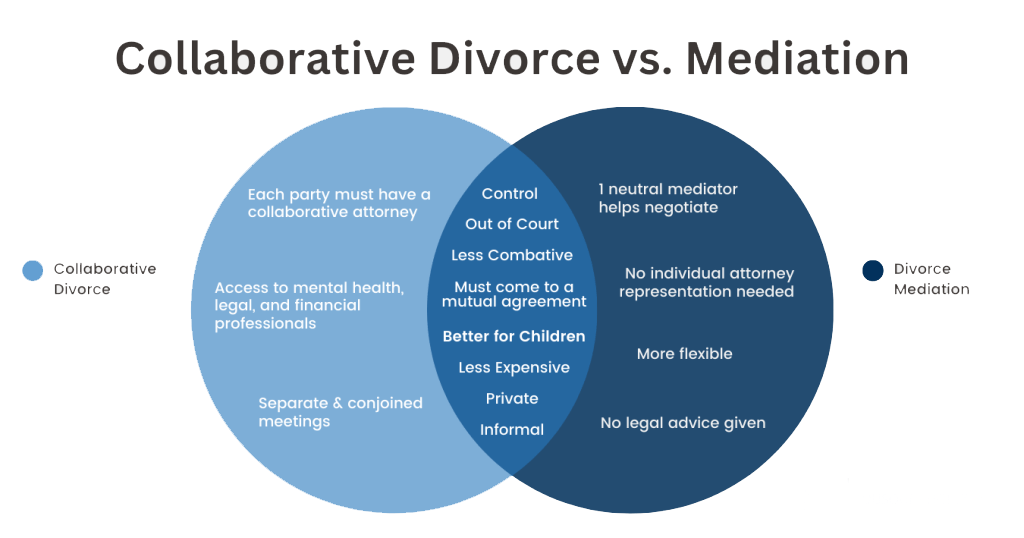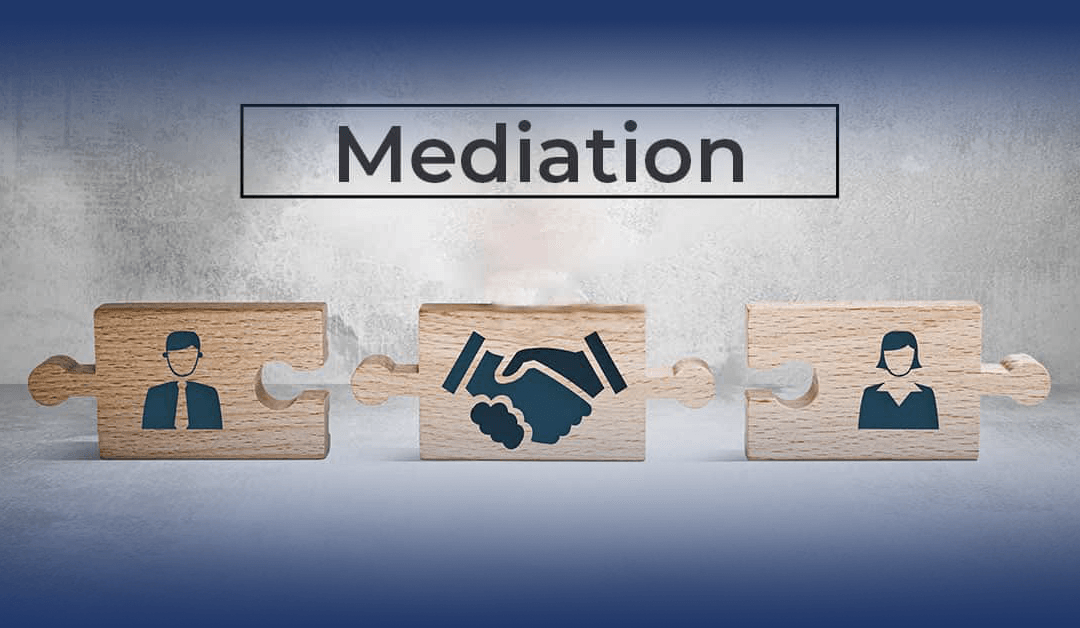Divorce is never an easy decision, but how you choose to navigate the process can have a profound effect on both the emotional and financial outcomes. The path you take can either escalate conflict or promote cooperation—and mediation is designed to offer a more peaceful, controlled alternative to traditional courtroom battles.
By engaging in mediation, couples can often resolve disputes with less hostility, more confidentiality, and a higher degree of control over their futures. However, mediation isn’t the right fit for every situation, so how do you know if it’s the best option for you?
In this blog, we’ll take a deeper look at the pros and cons of divorce mediation and compare it to another popular out-of-court method: collaborative divorce. Understanding the distinctions will empower you to make a more informed choice for your family and your future.
The Pros of Divorce Mediation
- Cost-Effective
One of the most appealing aspects of mediation is the lower cost compared to courtroom battles. Divorce litigation often involves higher attorney fees, court fees, and other expenses. Mediation, on the other hand, tends to be a fraction of the cost, as both parties work together to reach an agreement. - Faster Resolution
Mediation often takes significantly less time than a trial. By avoiding prolonged court schedules and multiple hearings, couples can finalize their divorce more quickly, which can reduce stress and uncertainty for both parties. - Greater Control
In mediation, you and your spouse retain control over the final agreement, rather than relying on a judge’s decision. This allows for more flexible solutions tailored to your unique needs, including arrangements around child custody, property division, and financial support. - Confidentiality
Unlike public court proceedings, mediation remains confidential. Sensitive family matters stay private, helping both parties maintain dignity throughout the process. - Reduced Conflict
Divorce mediation fosters a collaborative environment where both parties work together to reach an agreement. This reduces animosity and can be particularly beneficial for co-parenting relationships, as it encourages better communication and problem-solving.
The Cons of Divorce Mediation
- Not Suitable for All Couples
Mediation requires both parties to participate equally. In situations where there’s a significant power imbalance or domestic violence, mediation may not be appropriate. In such cases, other methods, like litigation, may better protect the interests of the more vulnerable party. - No Legal Advice During Mediation
Mediators act as neutral third parties, which means they do not provide legal advice to either party. While this keeps the process fair, you may still need to consult with your own attorney to ensure your rights are protected, especially when dealing with complex legal matters. - Potential for Incomplete Agreements
If both parties cannot resolve all issues through mediation, unresolved matters may need to be decided in court. This can lead to additional time and expense if a judge must intervene. - No Guarantee of Success
Although mediation boasts a high success rate, it’s not a one-size-fits-all solution. If communication breaks down or parties cannot compromise, mediation may not produce the desired outcome, and you may still face litigation.
Collaborative Divorce vs. Mediation: What’s the Difference?

Collaborative divorce and mediation share the goal of keeping disputes out of court, but they differ in their approach. In a collaborative divorce, each spouse has their own attorney present throughout the negotiation process. This can provide added legal support but may also increase costs and extend the timeline compared to mediation. Collaborative divorce requires both parties, along with their attorneys, to commit to resolving the issues without going to court.
Mediation, on the other hand, involves a neutral mediator facilitating discussions without attorneys in the room during the process. Legal representation can be sought before or after the mediation sessions, but it’s not part of the actual discussions. While mediation is generally quicker and less expensive, collaborative divorce may offer more robust legal guidance if the issues are particularly complex.
Conclusion: Is Mediation Right for You?
Divorce mediation offers a less adversarial and often more cost-effective way to resolve disputes, but it isn’t the best option for everyone. If you and your spouse can communicate effectively and are committed to finding common ground, mediation could help you achieve a smoother divorce. However, in cases where power dynamics or legal complexities exist, you may want to consider alternative approaches like collaborative divorce or litigation.
At Miod and Company, LLP, we understand that each family’s situation is unique. If you’re considering divorce and want expert advice on the financial and legal aspects, our team is here to help. Contact us today to learn more about how we can support you through this challenging time.
